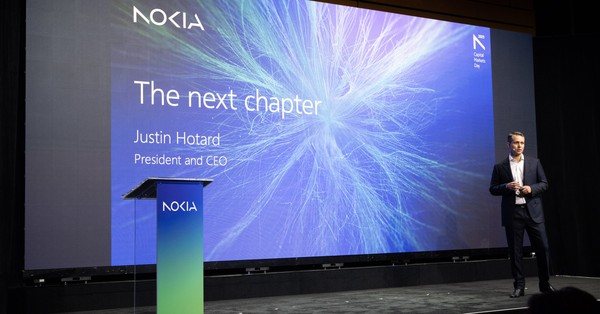Airbus Rolls Out Private 5G to Drive Smart Factory Transformation
Airbus is moving full steam ahead in its digital transformation journey. A cornerstone of this push is its deployment of Private 5G Networks in partnership with Ericsson. The initial rollouts are now active at Airbus’ Hamburg site, with the Toulouse factory close behind. These deployments enable secure, low-latency connectivity across production lines, fueling next-generation use cases such as augmented reality (AR), 3D simulations, and predictive maintenance.
Overcoming Connectivity and Cybersecurity Barriers in Aerospace Manufacturing
Airbus faced a complex manufacturing environment where traditional wireless networks were no longer sufficient. The limitations of legacy Wi-Fi and wired systems impacted:
- Real-time collaboration on aircraft assembly lines
- Traceability and visibility of parts
- Integration of advanced tools like AR/VR
- Secure, scalable connectivity across large facilities
Meeting strict cybersecurity and aviation safety standards added another layer of complexity, especially with data flowing across multiple IT systems and geographies.
Ericsson Private 5G Powers Airbus Factory Network Modernization
Enter Ericsson Private 5G — a dedicated, high-performance wireless network purpose-built for industrial environments. The Ericsson solution was deployed at Airbus’ Hamburg plant, providing seamless connectivity from the operator’s workstation to the aircraft cabin. Toulouse is next, with completion expected by 2026.
Key features include:
- Built-in automation for faster deployment
- Modular design and API integration with Airbus’ systems
- Secure architecture aligned with Airbus’ cybersecurity frameworks
- Full-site mobility for both people and machines
This architecture enables Airbus to scale private 5G networks across other locations — including the UK, Spain, and the United States.
Results from Hamburg: How Private 5G Improves Factory Efficiency
At the Hamburg facility, Airbus has already reported tangible outcomes:
- Faster implementation timelines through infrastructure automation
- Smoother integration with existing IT tooling
- A unified network that simplifies maintenance and boosts uptime
With private 5G, Airbus can now better manage critical operations, track assets in real time, and support edge-based applications that require ultra-reliable, low-latency connections.
Why Airbus Chose Ericsson’s 5G SA Architecture for Smart Manufacturing
Ericsson’s 5G Standalone (SA) architecture was a deliberate choice for Airbus, providing the flexibility and reliability that factory environments demand. The network enables a range of Edge Computing and Industrial IoT (IIoT) use cases, such as:
- Real-time quality control
- Collaborative robotics
- Intelligent equipment monitoring
With support for network slicing and API-driven workflows, the system is tailored to Airbus’ scale and complexity.
5G in Action: Key Benefits for Airbus’ Global Manufacturing Strategy
The move to private 5G brings several measurable and strategic benefits:
- Increased productivity: Operators and machines stay connected throughout the facility, enabling more efficient workflows.
- Higher operational agility: Airbus can quickly deploy new digital tools like 3D simulation and AR across sites.
- Predictive maintenance: Real-time data insights help reduce downtime and anticipate equipment failures.
- Improved part traceability: Enhanced tracking ensures compliance with strict aerospace standards.
- Global scalability: The architecture supports easy replication at other Airbus plants worldwide.
Shaping Industry 4.0: Airbus’ Role in Driving Aerospace Digitalization
This deployment marks a significant milestone in the aerospace sector’s shift toward Industry 4.0. Airbus is setting a precedent for how 5G and Private Networks can digitize complex manufacturing environments — safely, securely, and efficiently.
The project also contributes to broader advances in:
- Aerospace and defense digital transformation
- Smart manufacturing use cases
- Industrial innovation powered by IoT, Automation, and Edge Computing
Airbus Reimagines Digital Infrastructure with Unified 5G Networks
Airbus is not just deploying a private 5G network — it is reimagining its entire digital infrastructure. From predictive analytics to connected cabin concepts, Airbus is standardizing its digital platforms across its global footprint.
Hakim Achouri, 5G expert at Airbus, says: “Our objective is to migrate all our industrial networks towards 5G to ensure unified, ultra-reliable connectivity from the operator’s workstation to the aircraft cabin. This deployment accelerates projects involving 3D simulation, augmented reality, improved traceability for parts, and predictive maintenance for our assets. The standardization and scalability made possible by this architecture allow us to replicate the solution easily across further sites in Europe and worldwide.”
Ericsson’s Role in Enabling 5G for Scalable Aerospace Solutions
Ericsson brought its deep expertise in 5G and industrial-grade private network solutions to the table. Their platform’s automation and modular design were instrumental in accelerating time-to-value.
Manish Tiwari, Head of Enterprise 5G, Enterprise Wireless Solutions, Ericsson, says: “Our collaboration with Airbus embodies the alliance between technological innovation and industrial excellence. Ericsson is proud to support Airbus’ digitalization ambitions through Ericsson Private 5G, offering best-in-class, secure connectivity at scale.”
Together, both companies are now working on R&D projects that include 6G, Non-Terrestrial Networks (NTN), and connected aircraft cabins — expanding the impact well beyond the factory floor.
Deployment Progress: Hamburg Live, Toulouse Next, Global Rollout Ahead
As of October 2025:
- Hamburg: Fully operational with private 5G
- Toulouse: Deployment underway, completion expected by 2026
- Next: Rollouts planned in the UK, Spain, and the U.S.
This is part of a broader, multi-site roadmap to standardize digital infrastructure globally across Airbus operations.
- 2024: Planning and vendor alignment
- Early 2025: Deployment at Hamburg factory
- Late 2025: Toulouse deployment underway
- 2026–2027: Expansion across other Airbus sites globally
Executive Support for 5G-Driven Digital Transformation
This project has the full backing of both Airbus and Ericsson executive teams. It’s also gaining traction as a model for future aerospace and industrial deployments. With edge-to-core integration and enterprise-grade security, Airbus’ use of Private Networks is a strong endorsement of 5G’s industrial potential.








































